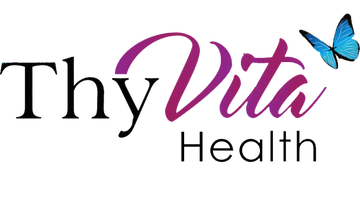The Emotional Toll of Thyroidectomy: More Than Just a Physical Change
About a year following my thyroidectomy, my husband and I found ourselves frequently arguing, a stark contrast to our previously harmonious relationship. We had always been loving and considerate, but something had shifted. I was often angry and easily provoked. During one intense argument, my husband, seeking understanding, asked, "What's wrong? Why are you so angry all the time?" Unsure how to respond, I reacted defensively, leading him to walk out the door. In that moment, I felt our relationship was over.
Seeing my kind-hearted husband pushed to such an extent was heartbreaking. When our sixteen-year-old son asked about his whereabouts, I could only say he had left. Although our son wanted to fetch him, I felt my husband needed space. It made me reflect on the consequences if he were truly gone. I knew I needed help, and wondered what was wrong with me?
In her book, *Life After Thyroidectomy*, Rebecca Ireland shares her emotional journey post-surgery and its strain on her marriage. Many individuals have faced similar emotional challenges post-thyroidectomy, with some relationships not surviving the turmoil. While thyroidectomy effectively treats thyroid diseases and cancers, its emotional and psychological side effects have deeply affected many lives, leading to mood swings, anxiety, and even depression-like symptoms.
Understanding Thyroidectomy
Thyroidectomy involves surgically removing part or all of the thyroid gland due to cancer, goiters, or hyperthyroidism. While generally safe, like any surgery, it carries risks such as bleeding, infection, and voice issues. Less discussed are the emotional repercussions, which can strain relationships with loved ones and colleagues.
Emotional and Psychological Effects of Thyroidectomy
The thyroid plays a crucial role in mood and cognition. Removal of the thyroid gland can lead to hypothyroidism, causing various emotional and psychological effects, including:
- Depression: Thyroid hormones regulate mood, energy, and brain function. Imbalances can mimic depressive symptoms, such as fatigue, weight changes, and mood swings, often accompanied by loss of appetite, tearfulness, and sleep disturbances.
- Anxiety: Post-surgery anxiety can arise from the operation itself, underlying diseases like cancer, or concerns about daily management and recovery. Anxiety may also stem from reduced thyroid hormone production or suppressive doses to prevent cancer recurrence.
- Mood Swings: Thyroid regulation impacts brain chemistry. Post-thyroidectomy, patients may experience mood swings, anger outbursts, or panic due to hormonal imbalances.
- Sleep Difficulties: Low thyroid hormone levels can lead to sleep disorders, exacerbating anxiety, depression, and fatigue.
- Irritability: Thyroid dysfunction affects brain function, leading to irritability, agitation, and frustration.
- Lack of Filter: Many patients report impulsiveness and loss of their "mouth filter," expressing themselves without restraint and later regretting their outbursts.
Underlying Causes
While medications can alleviate symptoms temporarily, they often fail to address the root cause, frequently a nutrient deficiency. Hypothyroidism can reduce stomach acid, hindering nutrient absorption and leading to fatigue, brain fog, and increased susceptibility to illnesses.
Treatment
After thyroidectomy, lifelong thyroid replacement medication like levothyroxine is typically prescribed. However, this often isn't enough. Nutrient deficiencies can exacerbate symptoms, leading to feelings like, "My TSH is Normal, but I Don’t Feel Normal."
Highly bioavailable supplements like ThyVita can help replenish these nutrients, alleviating post-thyroidectomy symptoms for many patients.
Conclusion
Patients often feel unheard when their blood work appears normal, yet they feel unwell. Advocating for nutrient tests and considering supplements can provide relief. I highly recommend Rebecca Ireland's *Life After Thyroidectomy*, which offers insights for patients and their families. Support groups like “Life After Thyroidectomy” on Facebook also offer valuable community and shared experiences.
REFERENCES:
1. Rebecca Ireland, *Life After Thyroidectomy*
2. [BTF Thyroid Psychological Symptoms Guide](http://www.btf-thyroid.org/information/leaflets/37-psychological-symptoms-guide)
3. [Healthline: Thyroid and Depression](https://www.healthline.com/health/thyroid-and-depression)
4. [Endocrine Abstracts: Thyroidectomy](https://www.endocrine-abstracts.org/ea/0025/ea0025p354)
5. [Calm Clinic: Hypothyroidism and Anxiety](https://www.calmclinic.com/anxiety/causes/hypothyroidism)
6. [Sleep Foundation: Thyroid Sleep Issues](https://www.sleepfoundation.org/articles/your-thyroid-blame-your-sleep-issues)
7. [BTF Thyroid Surgery Guide](http://www.btf-thyroid.org/information/leaflets/31-thyroid-surgery-guide)
8. [Mayo Clinic: Thyroidectomy](https://www.mayoclinic.org/tests-procedures/thyroidectomy/about/pac-20385195)
#Thyroidectomy #ThyroidHealth #EmotionalHealth #Hypothyroidism
#MentalWellness #ThyVita #ThyroidAwareness #PostSurgeryEmotions
#NutrientDeficiency #LifeAfterThyroidectomy #ThyroidSupport #Bioavailability
#HealthJourney #ThyroidCommunity #RebeccaIreland #MentalHealthMatters
#ThyroidRecovery #PatientExperience #MedicalInsights #SupportGroups

